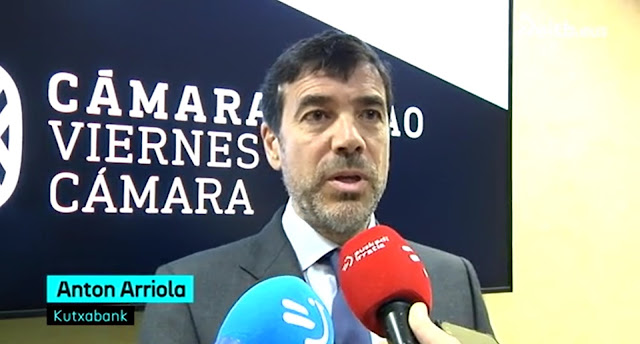Faced with the new LOSU, the opinion of Steillas
The Spanish Congress will adopt today [9 March] the bill of the Organic Law of the University System (LOSU). The amendments passed in the Senate have not meant a substantial modification of the project approved in Congress previously, except to give universities more flexibility and time to set up recruitment adaptations and new figures. Therefore, the project to be approved is practically the same as that which has been taken out of the congress.
According to Steillas, it is not a law that meets the needs and aspirations of public university education in the Basque Country. It does not envisage or offer instruments to overcome the administrative division between communities and states. Nor is it a law that liberates universities from the current mercantilist and bureaucratizing dynamics, although in the preamble of the law one can read another discourse.
However, with all this, it has a series of interesting, appreciable and directly questioned aspects and characteristics by the University of the Basque Country and the Public University of Navarra, as well as by the Government of the Autonomous Community of the Basque Country and the Foral Community of Navarra.
Thus, with the 2030 horizon, the law obliges to increase public funding of public universities to 1% of GDP. Currently, public funding for the UPV/EHU budget in the CAPV is barely 0.4% of GDP. This percentage has worsened in recent years, and the new University Plan 2023-2026, which will be approved soon, does not provide a good forecast from the point of view of public funding of the public university. In Nafarroa Garaia, for its part, the public contribution remains lower, at around 0.36% of GDP.
It is not a law that meets the needs and expectations of public university education in the Basque Country. It's not a law that frees universities from current market and bureaucratic dynamics.
The Basque Government and the Government of Navarre cannot shirk this mandate, which will be the great challenge of public universities and our governments in the coming years.
On another level, the law also has positive aspects in terms of university structure, governance and teachers (it maintains structures of representation and command based on suffrage, opens the way to equalizing working professors and officials, no longer demands to be an official to be a rector, a claim for gender equality), but also obscure (the condition remains that the majority of the professors of the public universities are an official, and the structure of the Social Council is almost in favour.
As for the structure of the studies, the structure of grades and postgraduate degrees is not modified, but the importance of studies throughout life is emphasized, and microcredentials or microgrades are also referred to as novelty. How will these proposals be implemented? Increased dependence on companies or on the supply of social services? Here too we risk the market deciding what the law and public policies do not prescribe or encourage. Hence, among other things, the importance of improving the funding of public universities.
With regard to the stabilisation of the workforce, and especially of teachers, it undertakes to reduce temporary recruitment by up to 8%. This issue will not take into account adjunct professors or associated health professors. Stabilisation measures are aimed exclusively at associated teachers and enable them to be converted into permanent contracts. This measure will have a limited impact on the UPV/EHU, as there has been no excess with this image similar to that of other Spanish universities. However, nothing is said about the situation and precariousness of part-time interim teachers, and the largest precarious pool of our university is the one that risks perpetuating itself with the new category of substitute teachers established by law.
In this way, the fundamental structure of the staff is not modified, and although the accreditation of the attached professors is not now required, the stabilization of the staff and the progress in the academic career will continue to depend on the bureaucratic accreditation system, with all the competence and mutual anxiety that this generates in the teaching staff.
Patxi AzpilhghGoenaga and Nagore Iturrioz López, Steilas Union
Bidali zure iritzi artikuluak iritzia@argia.eus helbide elektronikora
ARGIAk ez du zertan bat etorri artikuluen edukiarekin. Idatzien gehienezko luzera 4.500 karakterekoa da (espazioak barne). Idazkera aldetik gutxieneko zuzentasun bat beharrezkoa da: batetik, ARGIAk ezin du hartu zuzenketa sakona egiteko lanik; bestetik, egitekotan edukia nahi gabe aldatzeko arriskua dago. ARGIAk azaleko zuzenketak edo moldaketak egingo dizkie artikuluei, behar izanez gero.
A few weeks ago, on Diputación Street, in the centre of Vitoria-Gasteiz, two men threw a homeless person off the small landing outside the place where he slept. In addition to being thrown away, a metal railing was immediately placed in front of the lonja. Although the place... [+]
From linguistics or glotophobia and, of course, hatred against Basque, we have often seen our Basque become the dandruff of all sticks. Last of all, the president of Kutxabank, Anton Arriola, has been shaking our language and giving us galantas.The President of Kutxabank,
... [+]
Do not look for this connection from Ezkio or Altsasu, let alone crossing the Ebro River through Castejón. The connection, or rather the connections, between the Basque Y and the AVE of Navarre is already a reality. It is these links in the plural that should concern us and... [+]
Don't make a fuss, don't confront, don't victimize... and obey. As oppressed subjects, in this case as Basques, we talk, how many times have we had to listen to them? Ironically, two years ago, at the Euskalale Independentiston Meeting, Esne Arzallus said: "We have arrived here,... [+]
Aurten "Israel Premier Tech" txirrindularitza talde israeldarra ez da Lizarraldeko Miguel Indurain Sari Nagusia lasterketara etorriko. Berri ona da hori Palestinaren askapenaren alde gaudenontzat eta munstro sionistarekin harreman oro etetea nahi dugunontzat, izan... [+]
Intsumituek denbora luzez egindako borroka gogorra eta mingarria izan zen, baina irabazi zuten, eta garaipen hura behin betikoa izango zela uste genuen, atzera bueltarik gabea. Baina badirudi, politikari batzuen ahotik aterata, eskalada militaristari gorazarre egin eta berriz... [+]
Punto Bobo liburuaren irakurketan murgilduta, Itxaso Martin Zapirain egilearen Eromena, Azpimemoria eta Isiltasunak Idazten ikerketa lanean sentitu nuen egiazkotasun eta maila etikoarekin egin dut berriz ere topo. Eta hortaz, hara bueltatu. “Oihu izateko jaio zen isiltasun... [+]
Dirudienez, Euskal Herrian migrazioa arazo bilakatu da azken bi hamarkadetan. Atzerritarrez josi omen dira gure lurrak. Gure kultura arriskuan omen dago fenomeno “berri” horren ondorio. Lapurretak, bortxaketak, liskarrak… Bizikidetza arazo horiek guztiak... [+]
Azken hamarkadetan euskararen biziberritzeak duen erronka handienetakoa, euskararen ezagutzaren unibertsalizazioarekin batera, erabilerarena da. Askotan, gazteen euskararen erabileran jarri ohi dugu fokua, baita euskararen erabilerak izan duen eta izan dezakeen bilakaeraren... [+]
Goizean jaiki orduko hasten dira desegokitasunak. Beharbada lotarako erabili duzun lastaira ere ez zen egokiena. Baina, ezin ba idatzi desegoki sentiarazten nauten guztiez. Horregatik, udaberriko ekinozioa –egunaren eta gauaren arteko oreka– dela eta, oraindik ere,... [+]
Ez da gauza berria politikari profesionalak gizarteko arazoak estaltzeko ahaleginetan ibiltzea. Azkenaldian Denis Itxaso -EAEko Etxebizitza sailburua- entzun dugu etxegabetzeei garrantzia kenduz eta aditzera emanez gurean bazterreko fenomenoa direla; eta Begoña Alfaro... [+]
Antropozentrismoaren aldaera traketsena eurozentrismoa izan zen. Europako mendebaldea, geografikoki, Kontinente Euroasiarraren penintsula txiki bat besterik ez da, baina lau mende luzez gertaera demografiko, teknologiko eta ideologiko batzuk zirela medio, bazter horretako... [+]
Badakizuenok badakizue, beste gauza asko bezala, euskararen aldeko borrokan ere politikoek, eragile batzuek eta hedabideek beraien antzezlana saldu nahi digutela, benetakoa balitz bezala.
Lehen urtean pozik jaso nuen, "Euskaraldi" hau. Zer edo zer zen, ezer ez zegoela... [+]
Euskarak, mendez mende, zapalkuntza sistematikoa jasan du, eta oraindik ere borrokan dabil egunerokoan bere leku duina aldarrikatzeko. Hizkuntza baten desagerpena ez da inoiz berez gertatzen; planifikazio politiko eta sozialak eragiten du zuzenean. Euskaldunoi ukatu egin izan... [+]










